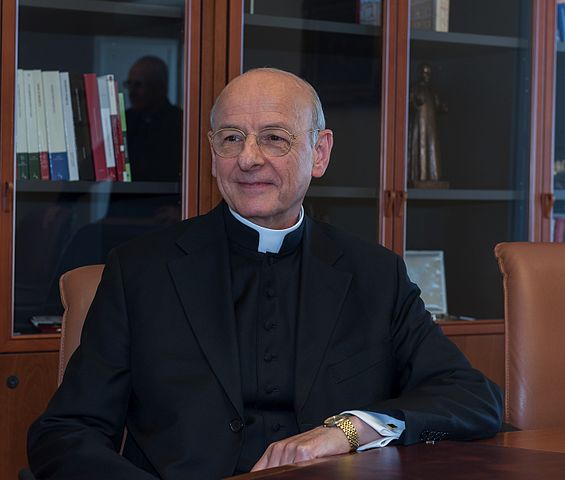For most of the 20th century, Marxism set its sights on state authority and openly political and economic goals. In more recent decades, though, many proponents of Marxism and other socialist stripes have sought to sow change on a societal and cultural level – a trend which some have termed “cultural Marxism.” Two authors who not only condemned Marxism but also saw its cultural transition early on are Monsignor Fernando Ocáriz Braña, current prelate of Opus Dei, and Rev. Enrique Menéndez Ureña, a Jesuit priest. Alejandro Chafuen, Acton’s Managing Director, International, writes today in Forbes about these and other religious voices in opposition to socialism.
Now that socialism is fashionable again in some circles, it pays to know it well. Socialism is attracting acolytes especially in certain age brackets and in countries that have not suffered under its most radical impersonations. When describing “socialism,” few people are thinking of North Korea or the old USSR, or even Venezuela. The term is used to describe a range of countries as different as Cuba and Sweden. Depending on ideological or propaganda goals, Sweden is described either as an example of democratic socialism or as a mostly free economy.
One of the theaters of this debate is the Roman Catholic Church. At least for some of us who remember the ’70s, it is déjà vu all over again. During my teenage years, communist forces tried to take over Latin America. Understanding that “the people could not be against the people,” socialists tried to infiltrate popular institutions and movements. The Catholic Church was one of their targets. Populist political parties were another. One was the Justicialista Party founded by Juan Domingo Perón in my native Argentina. In both cases communists failed to take complete control. Their ideologues and partisans, however, never abandoned their goals.
Although some diehard socialists still fought for traditional Marxism, which focused on the nationalization and state control of the means of production, by the 1980s it was apparent that the left was becoming more prudent with its economic goals. One example was the policies implemented by Felipe González of the Spanish Socialist Workers Party. After becoming prime minister of Spain in 1982, González decided to follow market-oriented policies. He kept the culture and educational ministries in order to help mold future generations. The new socialists were relinquishing some of their economic goals but keeping their cultural objectives intact.
Among the clergy, one who anticipated the shift from economic Marxism to a cultural war was Father Fernando Ocáriz. In 1976, when many in the Church were following and disseminating Marxist-informed liberation theology, Ocáriz wrote An Introduction to Marxism. This was an accurate description of Marxist philosophy and was highly critical of its impact. Many aspects of liberation theology, especially its Marxist framework, were later condemned officially by the Vatican, but in 1976 few Catholic priests had the courage and clarity to confront Marxism.
Read the entire article here.
(Homepage photo: Msgr. Fernando Ocáriz. Gabriel12and, Wikimedia Commons, CC BY-SA 4.0)

